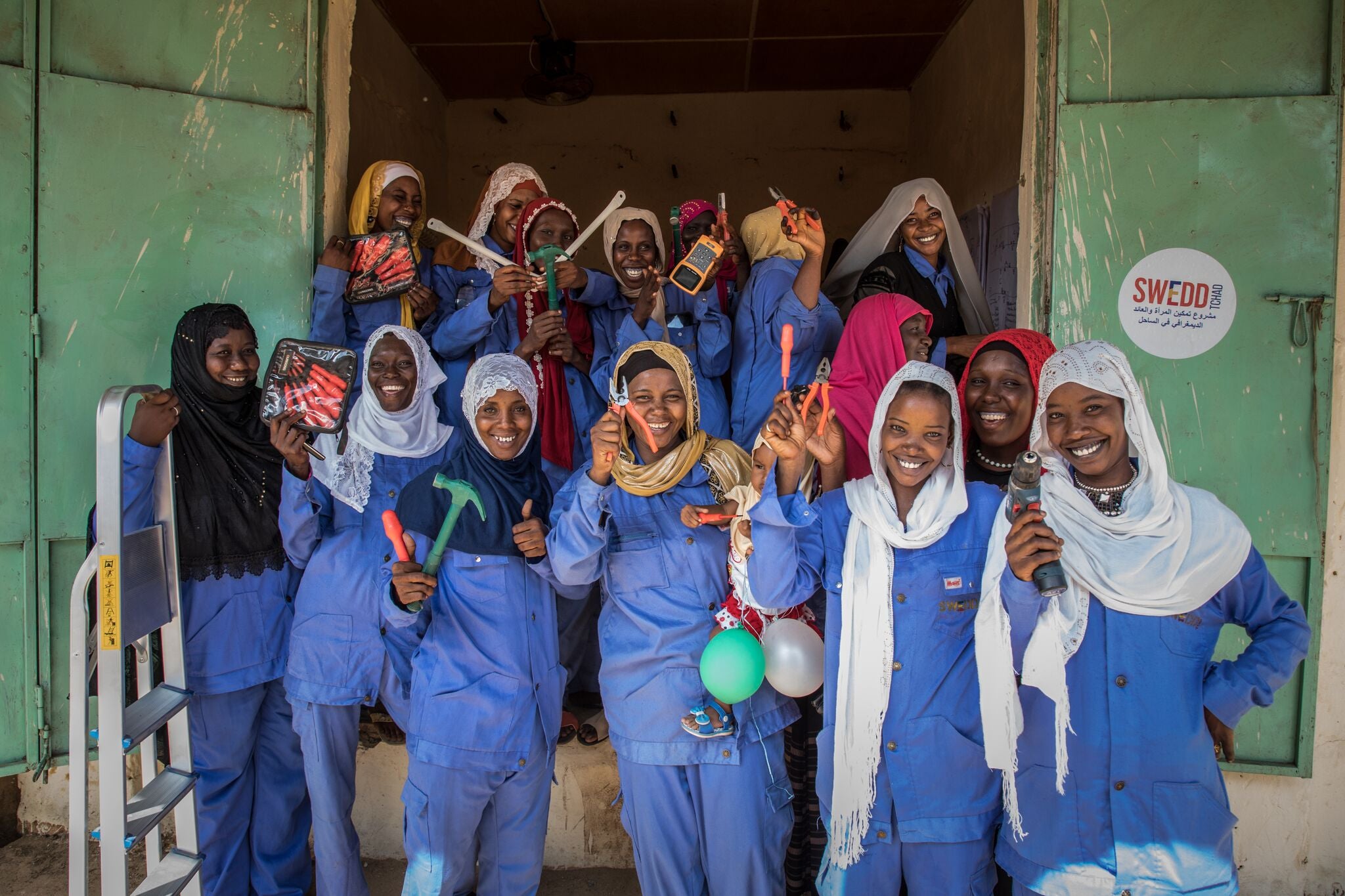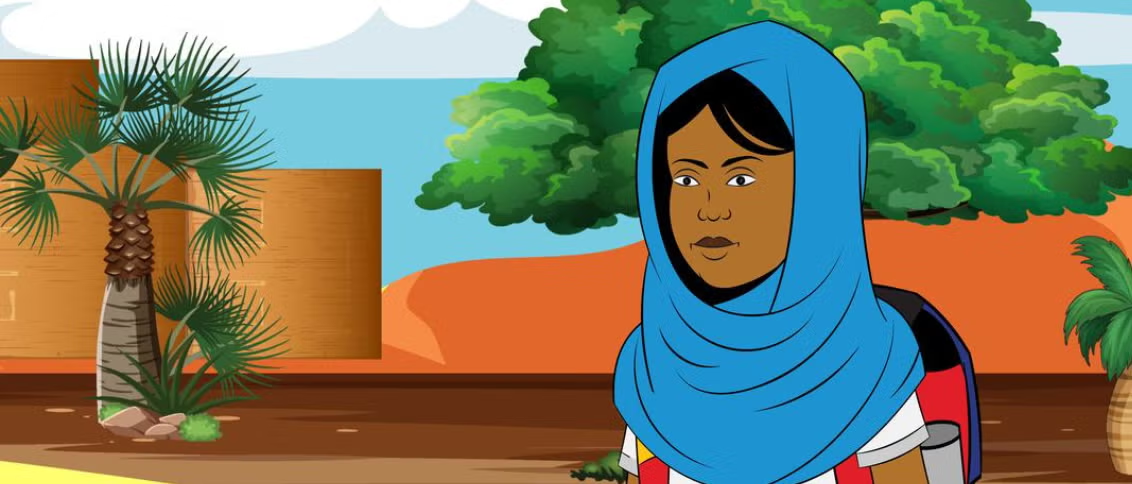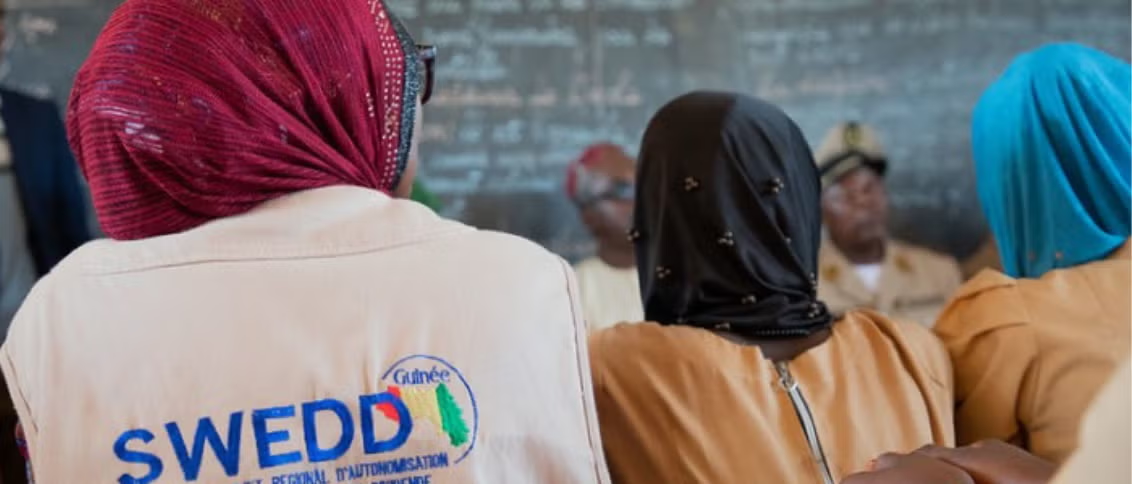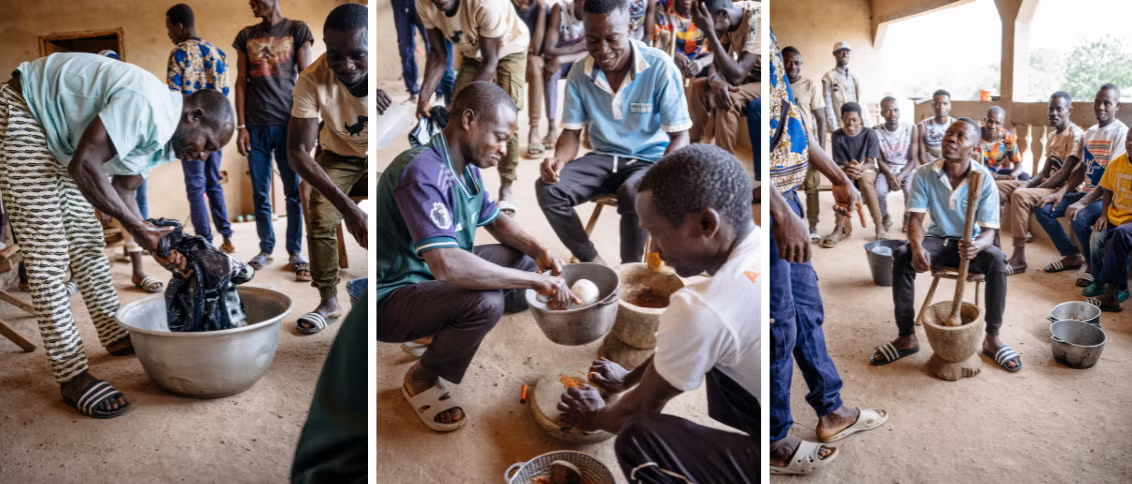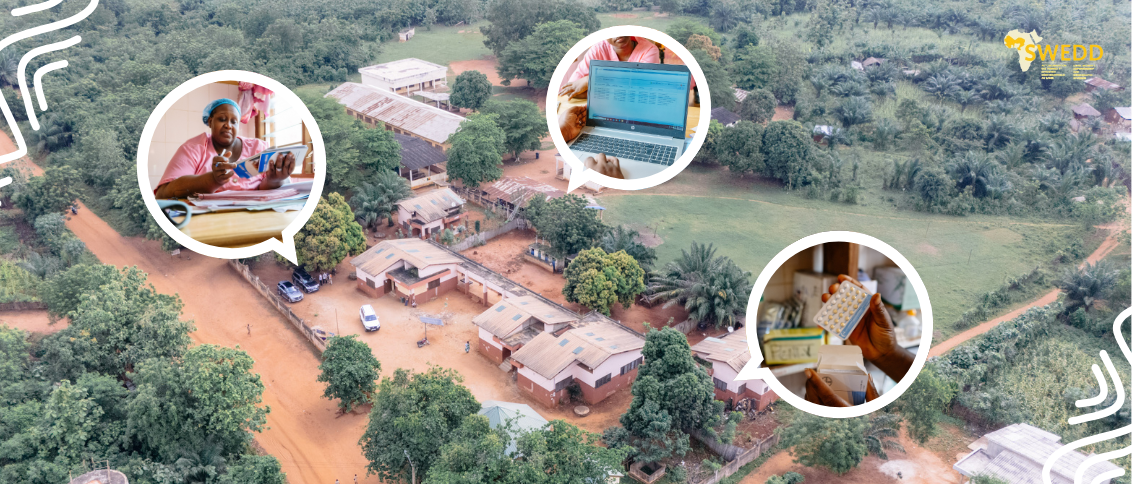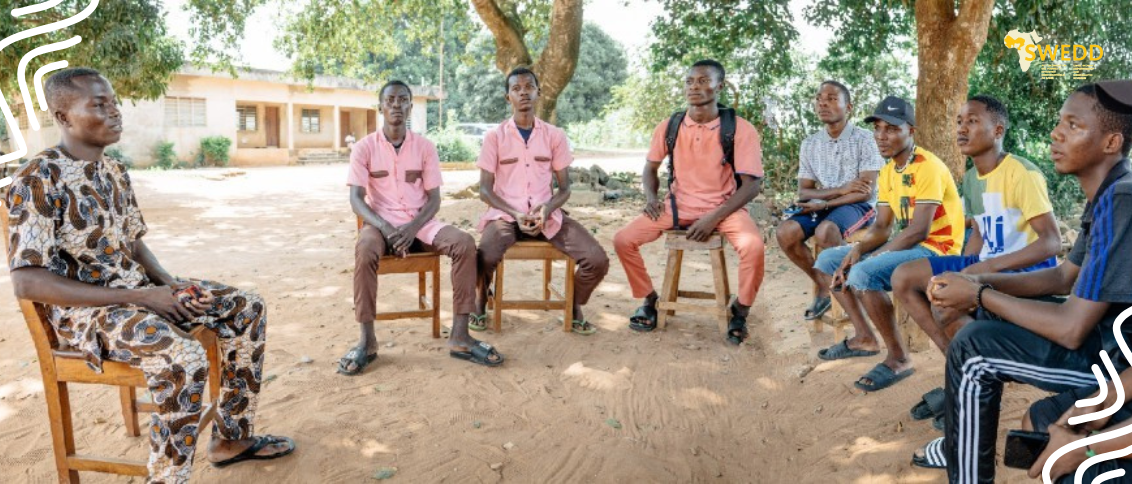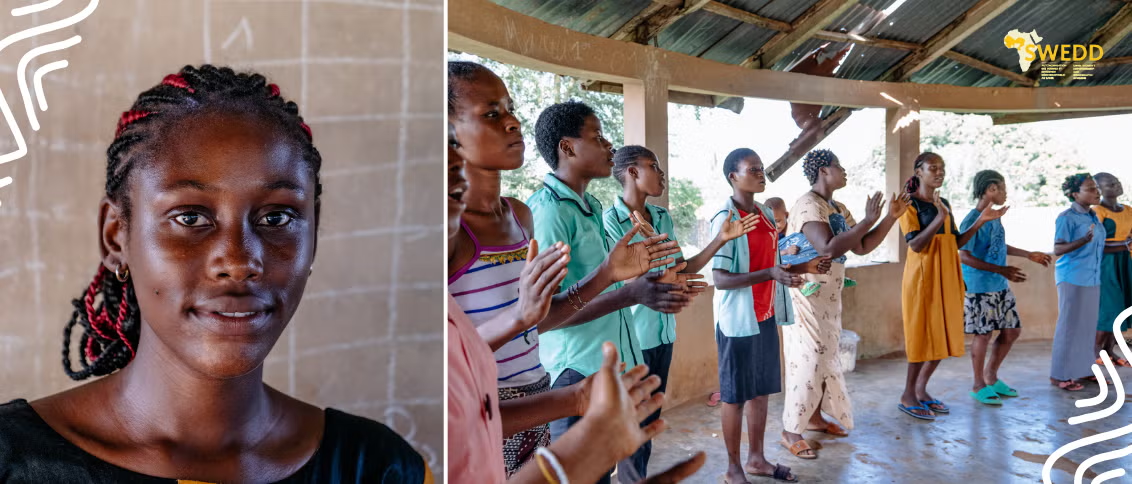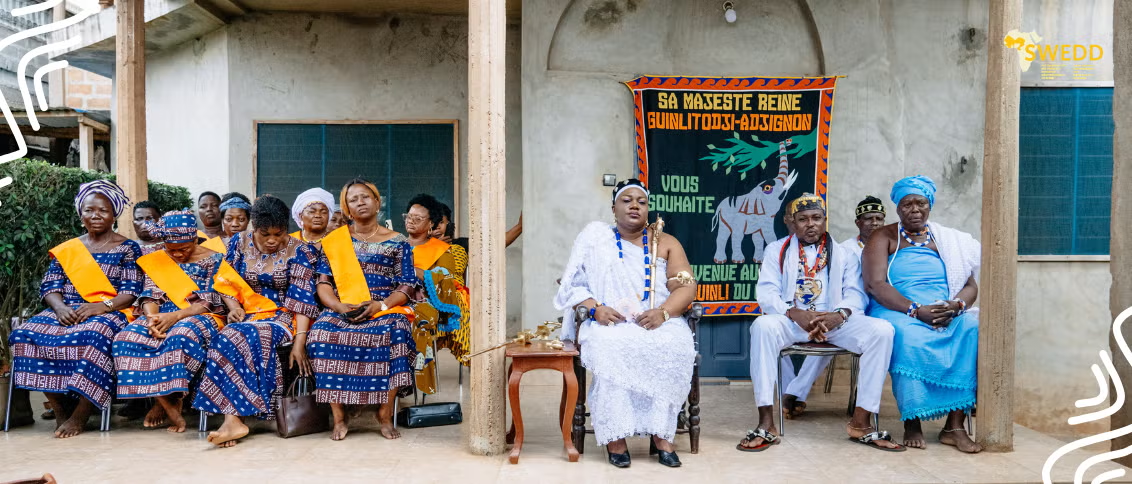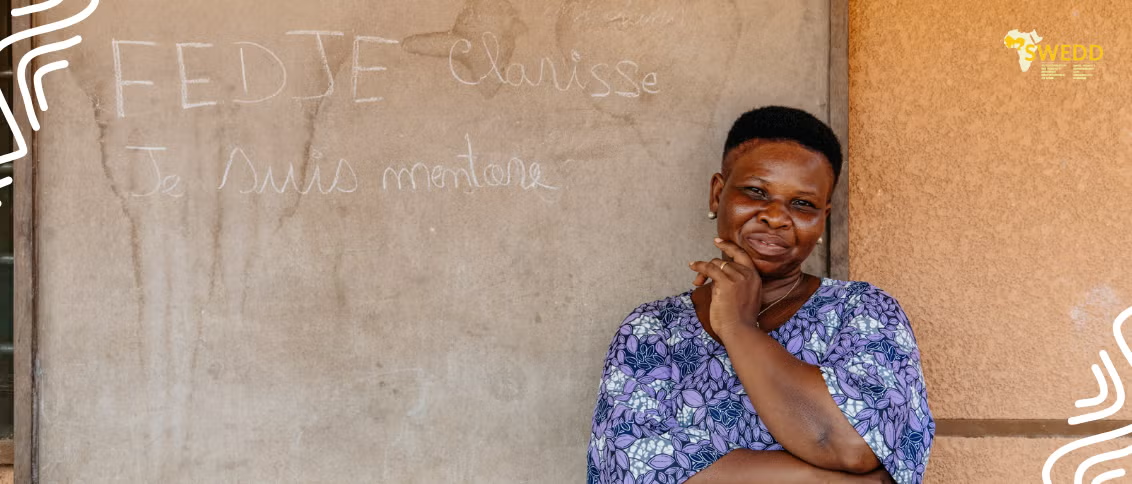Interventions
Main SWEDD results
Progress made
Supporting women's empowerment
Generating demand for products and services in reproductive, maternal, newborn, child and nutritional health (RMNCNH) through social communication and empowerment of women
New users of modern contraception methods
Girls and teenagers supported to enrol and stay in school
The retention rate of teenage girls enrolled in secondary schools thanks to the SWEDD project
Girls and young women trained in income-generating activities in safe areas
Girls empowered economically through employment and entrepreneurship opportunities and financial management training.
Husbands enrolled in community clubs that encourage men's involvement in gender equality and reproductive health issues
Religious leaders actively promote the empowerment of girls and women in rural communities, addressing harmful norms and practices
The number of people made aware of reproductive, maternal and child health through social and behaviour change campaigns
Strengthening the supply chain down to the last mile and healthcare staff capabilities
Harmonising registration and product quality control in the SWEDD area
Increasing the number of midwives
Strengthening training in the health sector by setting up three regional centres of excellence
Trained in services for teenagers and new technologies
Raising awareness among decision-makers
Setting up regional networks comprising religious and traditional leaders, parliamentarians, young people and journalists
Creating 7 national observatories on the demographic dividend
Drawing up a programming guide on the demographic dividend
Trained to run the National Demographic Dividend Observatories (NDDOs) to facilitate the collection of information on the demographic dividend and the vulnerability of women and girls. This information enables decision-makers to base their policies on observed population trends.
An already considerable impact
Increased contraceptive prevalence, with an additional 4,302,000 women taking contraception
Improvement in women's average income
Reduction in the number of child marriages
Health and food challenges
Progress has been made, but there are still challenges to be overcome if we are to reap the demographic dividend.
High maternal mortality
Loss of 90% of the surface area of Lake Chad
Famine, malnutrition, undernutrition
Coastal erosion
Epidemics
Scaling up the SWEDD project requires more resources from governments, technical and financial partners, the private sector and economic communities. An investment framework was thus created to consolidate the achievements and ensure greater dissemination of the project.

